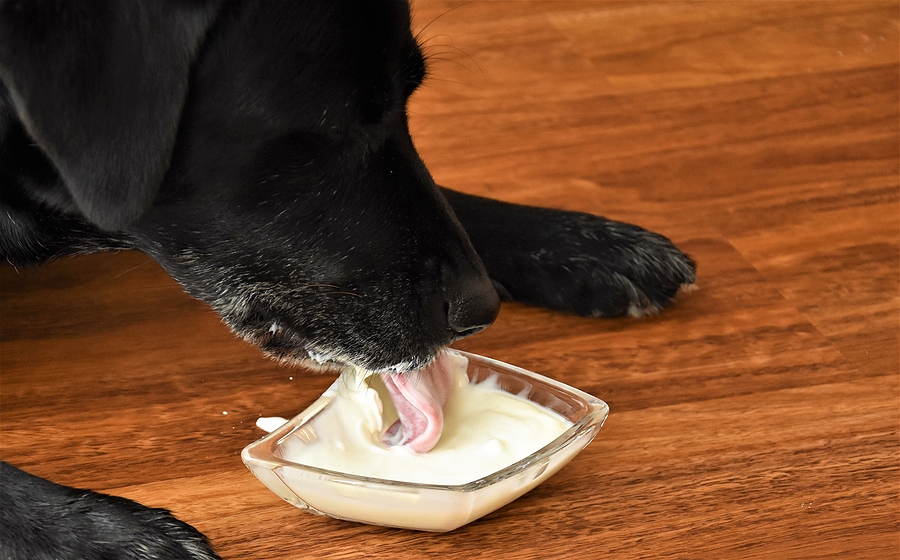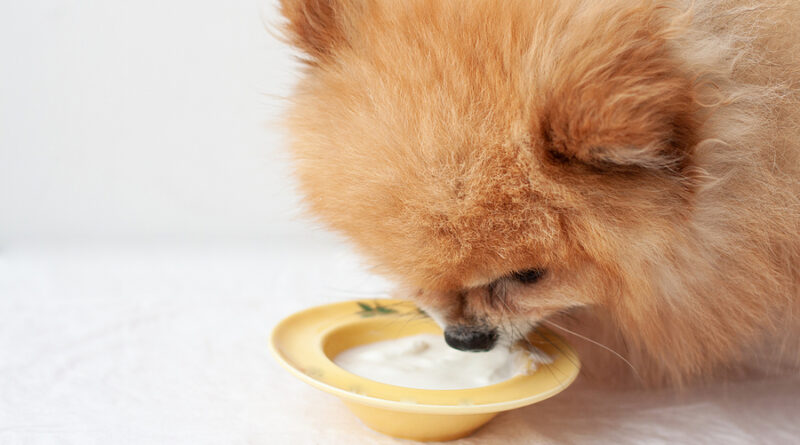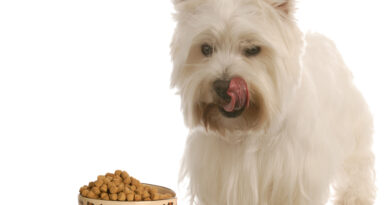Can Dogs Eat Yogurt? – is it safe
Featured image by © bigstockphoto.com / Varvara Serebrova
Can Dogs Eat Yogurt? - is it ok
Much has been said about the compatibility of dogs and dairy. Dogs have been used to manage cattle since the early days of agriculture, so it’s a weird, almost ironic twist that their compatibility with dairy is now a subject of debate. Yogurt is a sour product made by fermenting milk and has been a popular probiotic for humans since it was developed in the Fertile Crescent around 5000 BC.
Yogurt has been part of a balanced diet for many people long before they were sweetened and commercialized as a health food. Some people eat them as snacks while some treat them as full meals with the addition of grains and fruit. They are high in protein and calcium and has been a staple in vegan and vegetarian diets as an alternative source for many nutrients found in meat.
Some vegan and vegetarian dog owners are fond of sharing it with their dogs, but are they truly safe?
The Benefits of Feeding Dogs Yogurt
If your dog is not lactose intolerant, it can eat and digest yogurt. Some dogs consider it their favorite treat. It contains billions of live bacterial cultures that aid your dog’s digestion and restores balance in their gut flora.
Good Bacteria for a Balanced Gut
A healthy culture of good bacteria in your dog’s digestive system keeps their immune systems healthy and their moods positive. The gradual addition of yogurt to their diet can aid dogs who are susceptible to yeast infections, and some recurring skin and ear conditions.
If your dog has recently been prescribed an antibiotic regimen, their gut flora will be taking a hit. Antibiotics erase the good bacteria with the bad, and can sometimes mess with your dog’s digestive tract. In the world of mainstream pharmaceuticals, side effects are a necessary evil.
Because yogurt is a probiotic, it will restore the good bacteria in your dog’s stomach and help return their immune system to its original condition. Yogurt also helps in the production of a lot of B vitamins which are essential for good brain function and the healthful formation of red and white blood cells. If your dog is iron or calcium deficient, yogurt can also aid them in the absorption of these nutrients, along with magnesium and other healthy minerals.

The Downsides of Feeding Dogs Yogurt
To keep yogurt safe for consumption after long periods in storage, most of them are pasteurized. Pasteurization is the process of bringing dairy to high temperatures to eliminate harmful bacteria and pathogens that might spoil it while it’s being shelved in supermarkets. This is a healthy practice for non-probiotic dairy but will kill off the good bacteria in products like yogurt.
Is Your Dog Lactose Intolerant?
Many dogs are lactose intolerant, and the consumption of yogurt can wreak havoc with their digestive system. Some owners don’t find out until it’s too late, so it’s important to ask your vet about this before feeding them dairy that’s meant for human consumption. If your dog experiences diarrhea, flatulence, nausea, cramping, and constipation when consuming pasteurized products, they may be lactose intolerant.
How to Choose the Right Yogurt for Your Dog
This advice can work for humans as well as it can work for dogs: Do not consume dairy that’s loaded with sucrose, sugars, and artificial sweeteners. If your yogurt’s flavor comes from real honey, berries, fruits, and vegetables, you’re good, but even then, you should practice moderation.
A dog’s digestive system can only handle so much, so make sure you practice good portion control and make sure that their yogurt is free from added starches in addition to synthetic sugars. Xylitol is a notorious artificial sweetener that’s healthy for humans but deadly for dogs. Watch out for it in the ingredients list when buying sugar-free yogurt for your dog.




